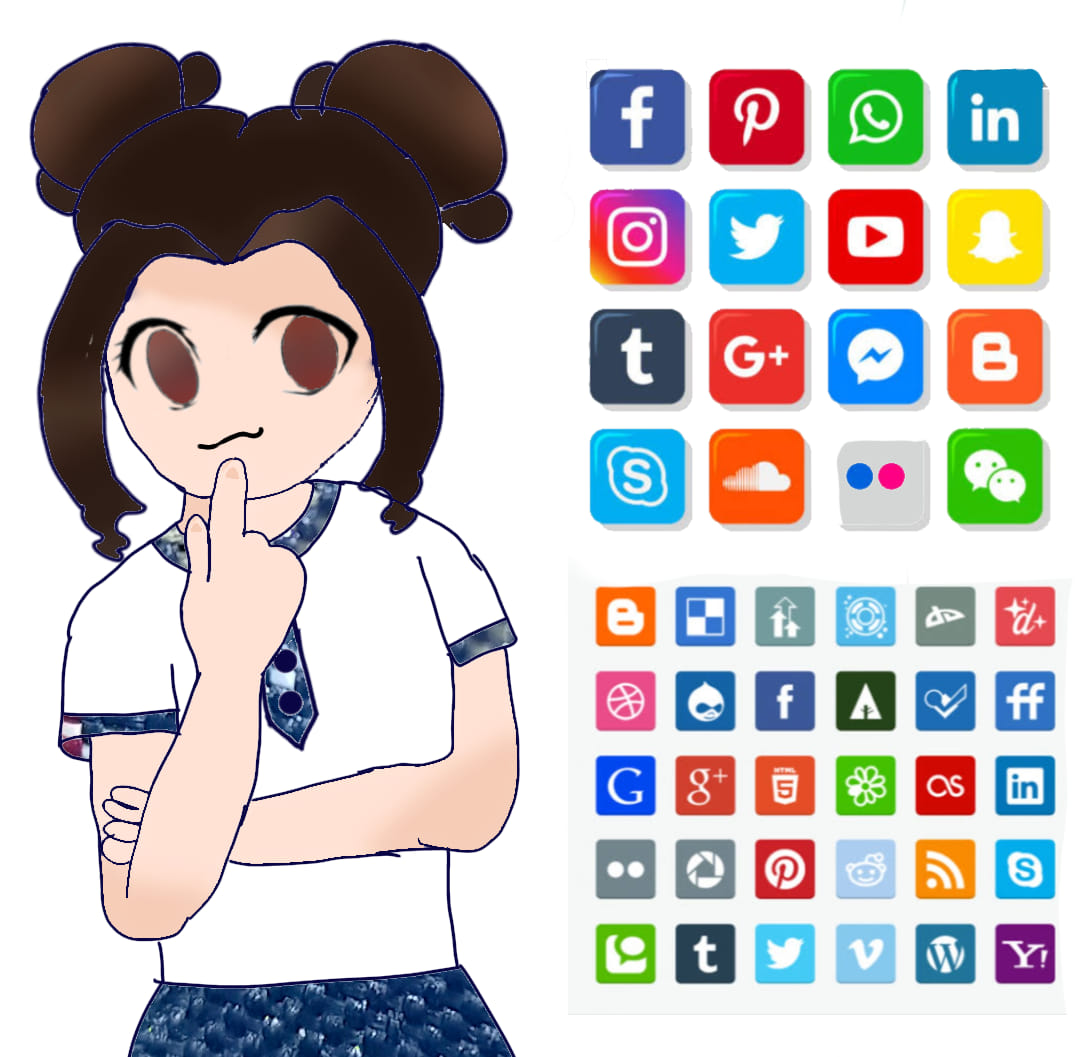by Samantha Mok (Grade 10 – Rizal)
Art by Pauline Abigail Mandalupe (Grade 6 – Zhang Heng)
Minors on social media platforms has been a relatively old discourse topic, starting from the take-over of digital and mass media across the world. However, considering current circumstances, where social media has become a necessary tool for mid-pandemic communication and access to entertainment and information, along with the positive and negative impacts social media can inflict on minors, the question is brought back: should minors be on social media?
Most social media platforms have an age restriction of 13 and above, allowing people who are technically still minors, to engage with the community within that platform. Even before the pandemic, the use of social media among the youth, especially adolescents, has already been prevalent. Social media apps and sites have long served as easily accessible platforms for communication, entertainment, self-expression, information, etc., where through it, people are able to connect with others and form relationships based on shared interests, ideas, and goals, which is an essential part of one’s development. It has been proven in several studies that social media is definitely beneficial to the youth in one way or another. Additionally, given the social restrictions brought by the pandemic, social media seems to be the only and most efficient way one can communicate with friends and family, and keep updated with recent events and news.
Although social media has its perks, it also has its drawbacks. While some social networks are age-restricted, it’s easy for someone, even those aged below 13, to pose as an older individual and gain access to the platform. Social media can be dangerous particularly for minors, as they are risked to exposure towards inappropriate content, and violent comments or cyberbullying, both of which can negatively impact their mental health. They are also placed in a vulnerable position for numerous threats to their safety such as sexual assault, trafficking, identity and data theft, etc., when they interact with strangers. Since the number of social media users has increased nowadays, these types of risks have increased as well. In these cases, parents or guardians should be responsible enough to monitor, talk to, protect, and educate their children about the risks of social media, what to do if certain situations happen, and who and what to avoid. Filtering content is one way to help counter these risks. Nonetheless, minors should also be responsible for their actions, watch what they look up, share, or post on social media, and be aware of and understand the said risks to avoid getting harmed.
Weighing the advantages and disadvantages, it can be said that minors can be allowed to use social media, provided that they know, understand, and are able to identify the dangers that come with it, how to protect themselves, and guided by these precautions and a responsible adult, therefore use it in a safe, enjoyable, and appropriate manner.

